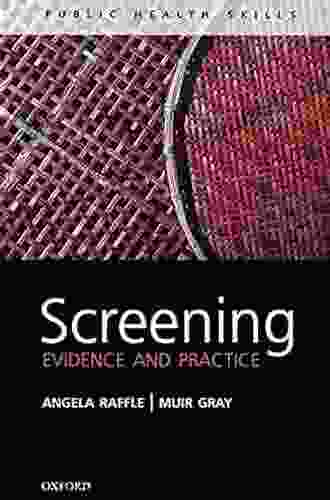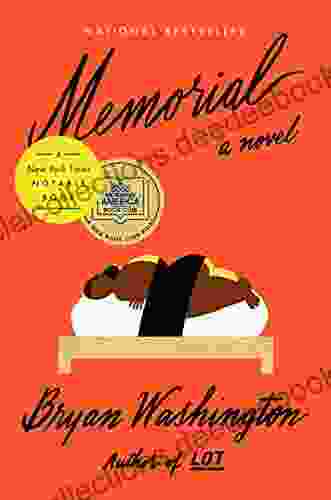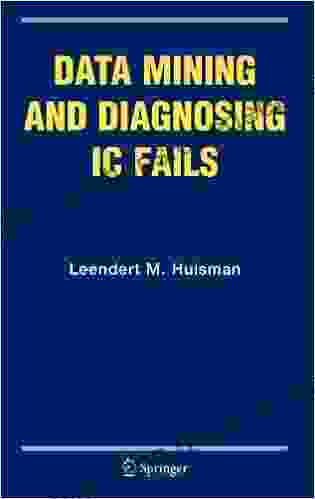Screening Evidence and Practice: A Comprehensive Exploration of John Locke's Philosophical Contributions

John Locke (1632-1704) was an English philosopher and physician widely regarded as one of the most influential thinkers of the modern era. His groundbreaking ideas on epistemology, rationalism, and empiricism laid the foundation for much of Western philosophy and scientific thought. This article aims to provide a comprehensive exploration of John Locke's philosophical contributions, particularly focusing on his theory of knowledge acquisition and the evidence he used to support his claims.
Epistemology and the Theory of Knowledge Acquisition
One of Locke's most significant contributions to philosophy was his theory of knowledge acquisition. He argued against the prevailing view of rationalism, which held that all knowledge is innate and derived from reason alone. Instead, Locke proposed that all knowledge originates from experience and sensation.
5 out of 5
| Language | : | English |
| File size | : | 4481 KB |
| Text-to-Speech | : | Enabled |
| Screen Reader | : | Supported |
| Enhanced typesetting | : | Enabled |
| Print length | : | 300 pages |
| Lending | : | Enabled |
The Blank Slate Theory
At the core of Locke's epistemology is the "blank slate" theory, also known as "tabula rasa." He believed that the human mind is initially a blank slate, devoid of any innate ideas or knowledge. All knowledge is acquired through experience, which is the process of receiving information from the external world through the senses.
Primary and Secondary Qualities
Locke further distinguished between primary and secondary qualities of objects. Primary qualities are inherent properties of objects, such as size, shape, and motion, which are independent of the observer. Secondary qualities, on the other hand, are properties that depend on the observer's sensory perception, such as color, taste, and smell.
Substance and Personal Identity
Locke also delved into the nature of substance and personal identity. He argued that substance, the underlying essence of things, is unknowable. However, he maintained that a person's personal identity persists over time, regardless of changes in their physical or mental state. Personal identity, according to Locke, is based on consciousness and memory.
Evidence for Locke's Claims
Locke's theory of knowledge acquisition was not merely speculative; he provided ample evidence to support his claims. He drew on various sources, including observations of human cognition, the study of language development, and cross-cultural comparisons.
Observations of Human Cognition
Locke meticulously observed the process of cognition in children and adults. He noted that young children have no innate knowledge and that their minds gradually develop through experience. He also studied memory and the limitations of human understanding.
Language Development
Locke analyzed the development of language as further evidence for his theory. He argued that language is a learned skill, acquired through experience with the environment. The words we use to describe the world are based on our sensory perceptions.
Cross-Cultural Comparisons
Locke also conducted cross-cultural comparisons to examine the diversity of human knowledge and beliefs. He noted that different cultures have different understandings of the world, which suggests that knowledge is not innate but rather acquired through experience.
Implications and Legacy
John Locke's philosophical contributions have had a profound impact on Western thought. His theory of knowledge acquisition, grounded in experience and sensation, challenged the dominant rationalist views of the time. Locke's ideas influenced subsequent philosophers, scientists, and intellectuals, including David Hume, George Berkeley, and Immanuel Kant.
Locke's emphasis on the importance of observation and empirical evidence laid the foundation for the scientific revolution. His writings influenced the development of the scientific method and the rise of modern science.
In addition to his contributions to epistemology, Locke's ideas also had significant political and social implications. His theory of natural rights and the social contract influenced the development of modern democratic societies and the American Declaration of Independence.
John Locke's philosophical contributions played a pivotal role in shaping the modern intellectual landscape. His theory of knowledge acquisition, based on experience and sensation, revolutionized the way we think about the origins of knowledge. Locke's emphasis on empirical evidence and his challenge to innate ideas laid the foundation for scientific inquiry and modern democratic thought. Through his rigorous observations and logical reasoning, Locke left an enduring legacy that continues to inspire and challenge philosophers and intellectuals today.
5 out of 5
| Language | : | English |
| File size | : | 4481 KB |
| Text-to-Speech | : | Enabled |
| Screen Reader | : | Supported |
| Enhanced typesetting | : | Enabled |
| Print length | : | 300 pages |
| Lending | : | Enabled |
Do you want to contribute by writing guest posts on this blog?
Please contact us and send us a resume of previous articles that you have written.
 Chapter
Chapter Text
Text Story
Story Library
Library Paperback
Paperback Magazine
Magazine Newspaper
Newspaper Sentence
Sentence Shelf
Shelf Bibliography
Bibliography Foreword
Foreword Manuscript
Manuscript Scroll
Scroll Codex
Codex Tome
Tome Bestseller
Bestseller Classics
Classics Library card
Library card Autobiography
Autobiography Memoir
Memoir Reference
Reference Encyclopedia
Encyclopedia Character
Character Resolution
Resolution Librarian
Librarian Card Catalog
Card Catalog Borrowing
Borrowing Archives
Archives Periodicals
Periodicals Study
Study Research
Research Reading Room
Reading Room Special Collections
Special Collections Study Group
Study Group Thesis
Thesis Dissertation
Dissertation Reading List
Reading List Book Club
Book Club Theory
Theory Textbooks
Textbooks Adam Moon
Adam Moon Allen O Donoghue
Allen O Donoghue David Crosby
David Crosby Li Young Lee
Li Young Lee Nina Revoyr
Nina Revoyr John Locke
John Locke Karen Ranney
Karen Ranney Justin A Frank
Justin A Frank Simon Lightfield
Simon Lightfield David Sellu
David Sellu Alex Marshall
Alex Marshall Rob Hill Sr
Rob Hill Sr Michael Simpson
Michael Simpson Ivelin Demirov
Ivelin Demirov Christian Jenkner
Christian Jenkner Thomas Mullen
Thomas Mullen Paul Allain
Paul Allain David Bohlke
David Bohlke Angela Cerrito
Angela Cerrito Julie Klam
Julie Klam
Light bulbAdvertise smarter! Our strategic ad space ensures maximum exposure. Reserve your spot today!
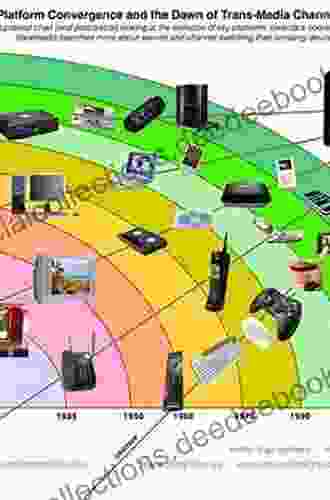
 Jonathan FranzenWorkers and Media in the Age of Convergence: A Long-Tail Analysis of Alt...
Jonathan FranzenWorkers and Media in the Age of Convergence: A Long-Tail Analysis of Alt... Francis TurnerFollow ·9.1k
Francis TurnerFollow ·9.1k Dion ReedFollow ·14.7k
Dion ReedFollow ·14.7k Ervin BellFollow ·4.3k
Ervin BellFollow ·4.3k Samuel BeckettFollow ·12.6k
Samuel BeckettFollow ·12.6k Duane KellyFollow ·12.7k
Duane KellyFollow ·12.7k Barry BryantFollow ·7.3k
Barry BryantFollow ·7.3k Jorge AmadoFollow ·14.2k
Jorge AmadoFollow ·14.2k Franklin BellFollow ·4.4k
Franklin BellFollow ·4.4k
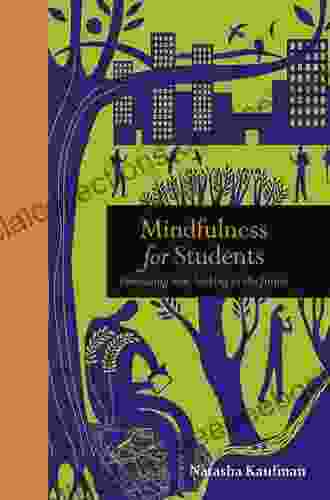
 Andy Hayes
Andy HayesEmbracing Now: Embark on a Mindfulness Journey for a...
In a world...

 Heath Powell
Heath Powell100 Hymns for Violin and Guitar: A Comprehensive Guide to...
The violin and...

 Floyd Richardson
Floyd RichardsonBark In The Park: Poems For Dog Lovers
Dogs are our best...

 Douglas Adams
Douglas AdamsThe Barter Crusade: A Journey into the Realm of Exchange...
In a world driven by monetary transactions,...

 Nathaniel Hawthorne
Nathaniel HawthorneInsight Guides Explore Nice & the French Riviera...
Prepare to embark on an unforgettable journey...
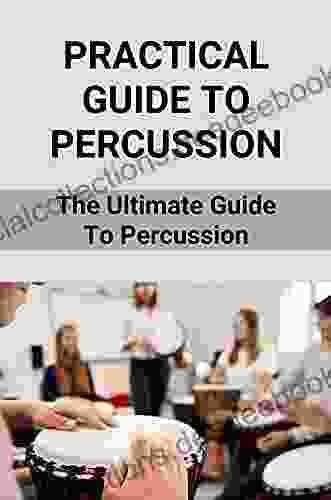
 Carlos Fuentes
Carlos FuentesThe Ultimate Practical Guide to Percussion: Exploring the...
Embark on a journey into the enchanting...
5 out of 5
| Language | : | English |
| File size | : | 4481 KB |
| Text-to-Speech | : | Enabled |
| Screen Reader | : | Supported |
| Enhanced typesetting | : | Enabled |
| Print length | : | 300 pages |
| Lending | : | Enabled |


